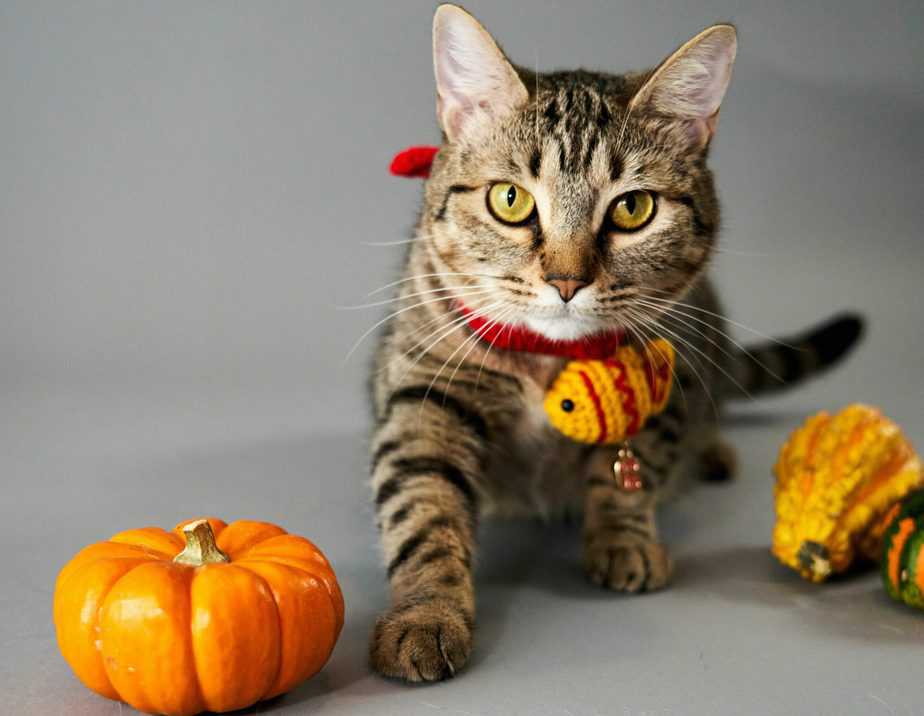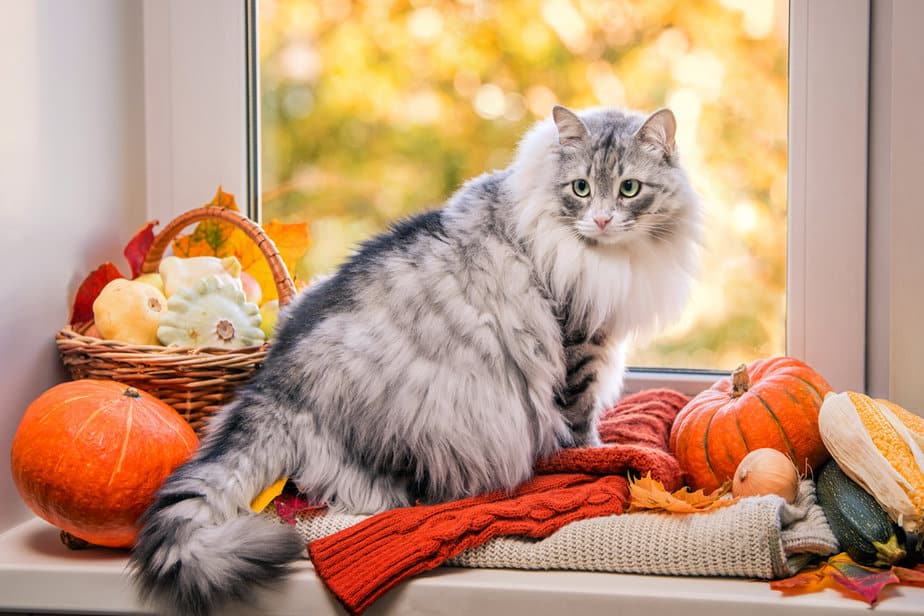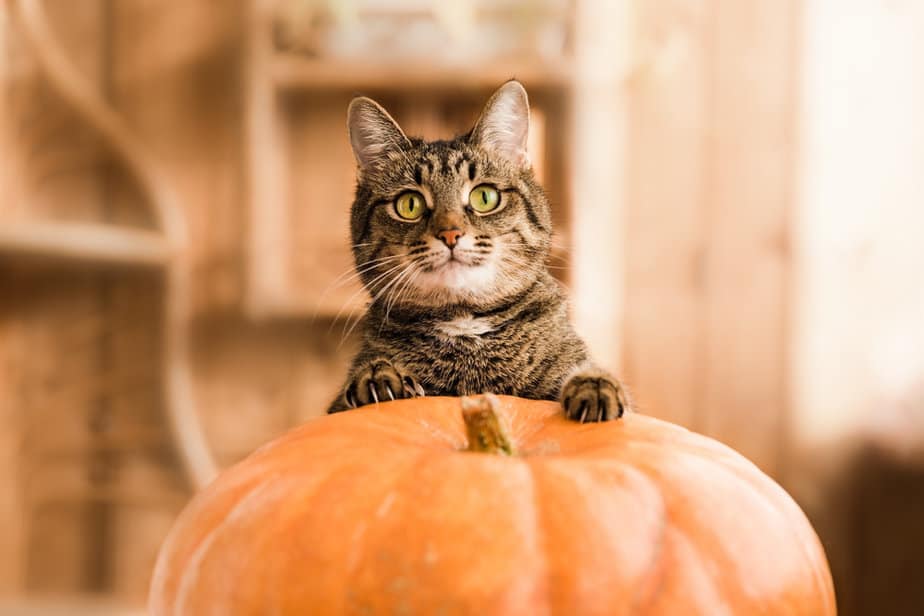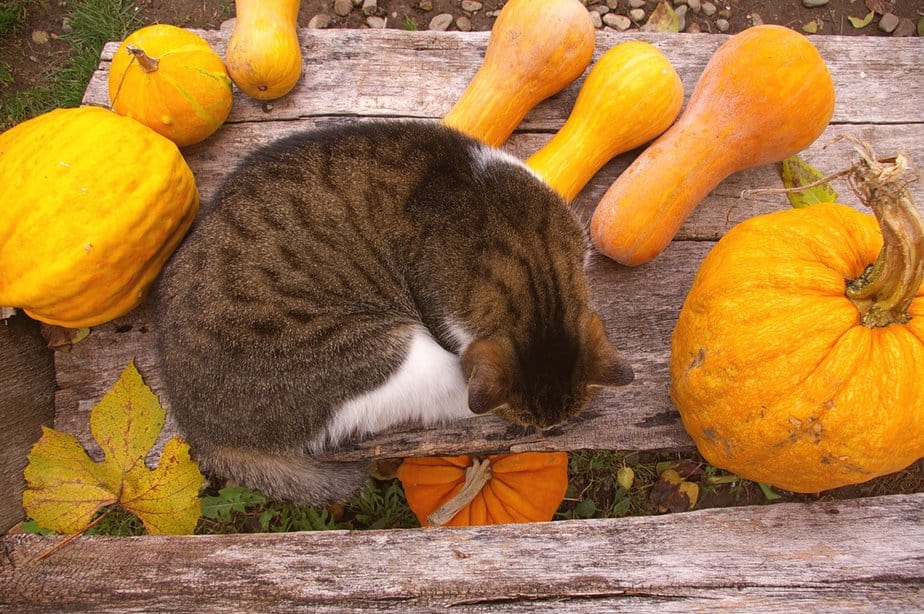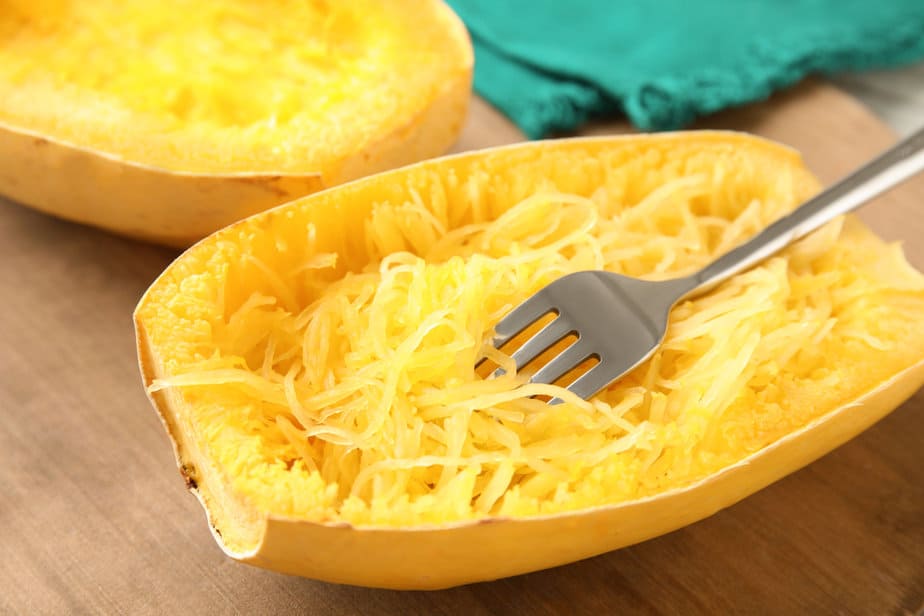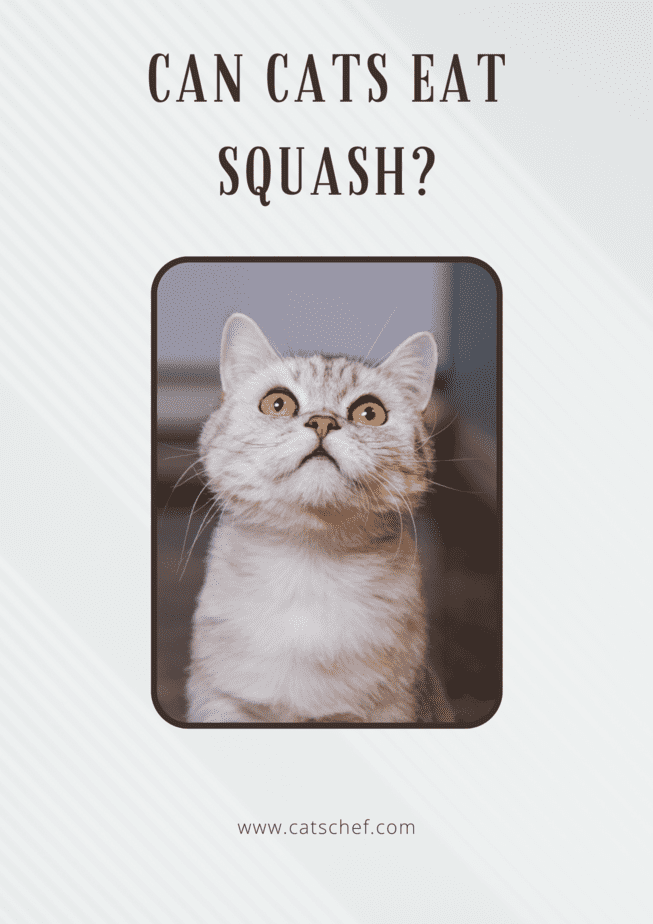📖 Table of Content:
You just learned about the newest spaghetti squash recipe trending on TikTok and your four-legged friend is already giving you the side-eye. Her meows of desperation suggest she hasn’t eaten anything in days, but she just had a bowl of kibble… Argh, can cats eat squash?!
Butternut squash, summer squash, winter squash, acorn, pumpkin, zucchini… They come in all shapes and sizes. They make for a great pumpkin puree or a pumpkin pie filling, and they make your feline friend happy and healthy. So yes, cats can eat squash!
According to our friends over at the ASPCA, all forms of squash are considered safe for your cat. Squash is one of those rare plant-based foods that are surprisingly beneficial to your cat’s health. Scroll down to uncover everything there is to know about this fragrant fruit!
So, can cats eat squash?
Yes, you read that right! While squash does get commonly mistaken for a veggie, it’s actually a large fleshy fruit. Still, we’re all glad that we’re treating this plant as a vegetable since I don’t know who would like to bite into it when enjoying a bowl of fruit salad.
It’s used in different delicious recipes in kitchens around the world. But, could it be used in your furry friend’s kitchen, too? Can cats eat squash?
Cats are obligate carnivores which means they require heaps of meat, animal protein, and animal-sourced nutrients to survive and thrive. Squash doesn’t fall under that category. But, it’s actually one of the few plants that can provide your cat with a bunch of nutritional and health benefits.
Actually, most commercially available cat foods include squash as one of their ingredients. That’s because it provides your cat with heaps of vitamins, minerals, antioxidants, and dietary fiber. So yes, cats can eat squash.
There’s no reason to panic when your mischievous monster decides to pull a Bonnie and Clyde move and sneaks a bite of your roasted butternut. But, it’s important to remember that the cooking method and the ingredients you used determine whether your squash is safe for your cat.
Three reasons why squash is great for your cat
Squash is one of those predominantly human foods that’s really hydrating as it has a high-water content. And it’s really healthy as it has a low-calorie content. This makes it a great choice of a cat treat as it can do wonders for a cat’s body, immune system, and digestive system.
1. Helps with digestion
Squash is rich in dietary fiber which is incredibly important for your cat’s digestive system. Not only does it help with conditions such as constipation, diarrhea, and vomiting, but it also helps maintain the optimal health of her digestive tract.
Squash does also contain carbohydrates which typically don’t get a passing grade when it comes to your cat’s diet. But, the amount seems pretty insignificant in comparison with some other high-carb human foods, so the squash can still get an A+.
Additionally, if your cat is suffering from gastrointestinal problems it might be a great idea to feed her some boiled squash instead of her regular kibble. So, if you’re still wondering “can cats eat squash” this might be the answer you’ve been hoping for.
2. Gets rid of hairballs
Here’s another great benefit of feeding squash to your cat. It can also help your cat get rid of those pesky hairballs because it contains such high levels of dietary fiber.
Your furry friend might be even more prone to getting these esophageal obstructions during the shedding season. Trust me, there’s hardly anything that can save you from getting those hairballs out yourself than brushing her fur regularly and feeding her with foods that have high levels of dietary fiber.
And that’s where squash comes to play. Don’t get me wrong, commercially available pet food does a great job of providing your cat with necessary nutrients. But, it doesn’t hurt to switch things up a bit from time to time.
3. Packed with vitamins, minerals, and antioxidants
Last but not least, squash is packed with vitamins, minerals, and antioxidants that play an essential role in maintaining your cat’s health. While she should get most of her nutrients from animal-sourced foods, there’s no reason why she shouldn’t get some extra help from an occasional squash snack.
Let’s get a bit more specific, shall we? When we’re talking about all these amazing benefits squash brings to the table, we’re talking about vitamin A, vitamin C, beta-carotene, potassium, calcium, magnesium, and manganese.
Honestly, cats should be omnivores because they’re missing out on so many incredible vitamins and minerals they can’t get from meat. Jokes aside, your cat can certainly spice things up with an occasional squash snack as long as you cook it properly.
Raw squash can be quite hard to digest, but don’t worry. Your four-legged friend can get all these nutrients from peeled, cooked, and chopped squash, too. But, can she eat different types of squash with no repercussions?
Can cats eat butternut squash?
Yes, they absolutely can! Butternut squash is one of the most popular types of squash among humans, and we wouldn’t be to see your four-legged friend trying to steal some off of your plate. This tasty treat is packed with vitamins, minerals, and fiber which makes that situation even better.
For instance, vitamin A is responsible for the health of your cat’s skin and fur. Healthy fats and fatty acids are responsible for the health of your cat’s heart and the prevention of heart disease. A bite or two of butternut squash should be a great treat for your cat.
What about yellow squash?
This one gets a passing grade, too! Yellow squash is a quite small, sweet type of squash that’s typically eaten in the summer. It’s packed with vitamins A, vitamin B6, and vitamin C. It’s also rich in folate, magnesium, fiber, riboflavin, phosphorus, and potassium.
These nutrients make it a great choice for your cat since they work overtime to ensure your cat’s health. Some pet parents believe that yellow squash is also a great source of plant-based fiber so you might want to be careful with the portion size.
Can cats eat acorn squash?
Yes, they can! Acorn squash is even smaller and cuter than yellow squash, which certainly plays a role when your cat tries to decide which food is worth stealing out of your pantry.
Luckily for her, acorn squash does contain a bunch of vitamins and minerals. Vitamin A, vitamin C, vitamins B1 & B6., beta-carotene, calcium, and copper are only some of the essential nutrients your cat can find in this type of squash.
“Can cats eat squash” is starting to sound a lot like “should cats eat anything other than squash”, right?
What about spaghetti squash?
Yes, cats can also eat spaghetti squash! We’re not talking about your favorite spaghetti and meatballs, contrary to what most people think of when they hear this name. Spaghetti squash is actually a type of squash with spaghetti-textured, neutral-flavored flesh.
Let’s be honest, it’s a favorite among humans because it’s a healthier version of your regular packed-with-carbs spaghetti and it’s great for weight loss. As for your cat, spaghetti squash contains a bunch of vitamin C, vitamin B6, betacarotene, and fiber. It’s a win-win situation!
And winter squash?
You guessed it, this one is also a resounding yes! Winter squash packs a punch when it comes to the numerous nutrients it brings to the table. Beta-carotene, vitamin C, vitamin B6, fiber, magnesium, and potassium are only some of them.
It’s safe to say that you no longer have to wonder whether cats can eat squash. This tasty treat deserves a seat at your cat’s table (or on your cat’s plate, for that matter). Trust me, throw a couple of squash snacks into your cat’s bowl and enjoy her happy purrs!
